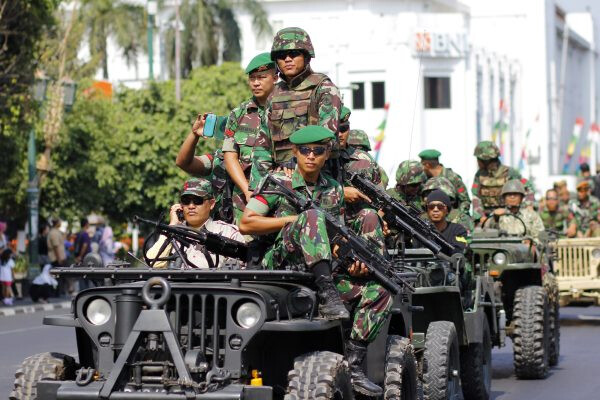
Jakarta – In a move marking the most significant military expansion in decades, Indonesia's government under President Prabowo Subianto has established 23 new regional commands, a decision that has been framed as a necessary measure for national security but has fueled concerns about a potential return to the military's pervasive influence in civilian life. The large-scale reorganization, announced recently by government officials, includes new commands for all three branches of the armed forces and has been met with a mix of government justification and expert apprehension.
The expansion, which comes less than a year after Prabowo took office, sees the establishment of six new regional commands for the army, strategically positioned in resource-rich and sensitive areas stretching from the Strait of Malacca to the eastern border with Papua New Guinea. The navy is set to add 14 new regional commands, while the air force will create three. According to military authorities, this restructuring is aimed at strengthening security in border areas and regions prone to conflict. The move is a clear signal of Indonesia's intent to project a more robust defense posture in an increasingly complex geopolitical landscape, particularly in the South China Sea, where regional tensions with China have been on the rise.
President Prabowo, a former special forces general, has consistently emphasized the need for a powerful military. During a recent address near Bandung, he stated, "The world is full of uncertainties. Whether we like it or not, wars are happening everywhere." While asserting that Indonesia would "not take sides," he stressed the imperative for the nation to possess a "very strong defense" to ensure its sovereignty. This rhetoric aligns with his campaign promises to modernize the armed forces and elevate Indonesia's role as a regional power.
However, the expansion has triggered alarm among political analysts and civil society groups. Experts warn that the initiative will place an enormous burden on the national budget and could pave the way for a resurgence of military power in civil administration, a pattern reminiscent of the Suharto dictatorship from 1968 to 1998. During that era, active military personnel held numerous government positions, including governorships and mayoralties, effectively giving the military a dominant role in both government and state-owned enterprises.
Following Suharto's ouster and Indonesia's transition to democracy, a series of reforms limited the military's political role, restricting active-duty service members to institutions like the Ministry of Defense and the National Intelligence Agency. However, since Prabowo's rise to power, this separation has begun to blur. His administration has already expanded the list of state institutions where military personnel can serve, a policy that critics argue undermines the democratic reforms of the post-Suharto era.
The financial implications of this military buildup are significant. Indonesia's defense budget for this year is estimated at $15.2 billion (approximately 21.1 trillion rupiah), a staggering 50% increase from the initial allocation. Analysts express concern that this substantial allocation could divert crucial resources from other pressing sectors, such as healthcare and education, which are vital for the nation's development.
Prabowo's own history adds to the unease. He served as a special forces commander under his former father-in-law, Suharto, and has long been dogged by allegations of human rights abuses. These accusations stem from his involvement in the suppression of pro-independence movements in East Timor and Papua, as well as the alleged abduction of pro-democracy activists in the late 1990s. While he has denied these claims, his past military career and close ties to the Suharto regime fuel skepticism about his intentions and raise questions about the long-term impact of his policies on Indonesia's democratic trajectory.
The military's expansion represents a delicate balance between a nation's desire for a stronger defense and the deeply ingrained fear of authoritarian overreach. As Indonesia navigates a complex regional security environment, the public and international community will be closely watching whether Prabowo’s push for a more powerful military comes at the cost of the nation's hard-won democratic principles.
[Copyright (c) Global Economic Times. All Rights Reserved.]






























